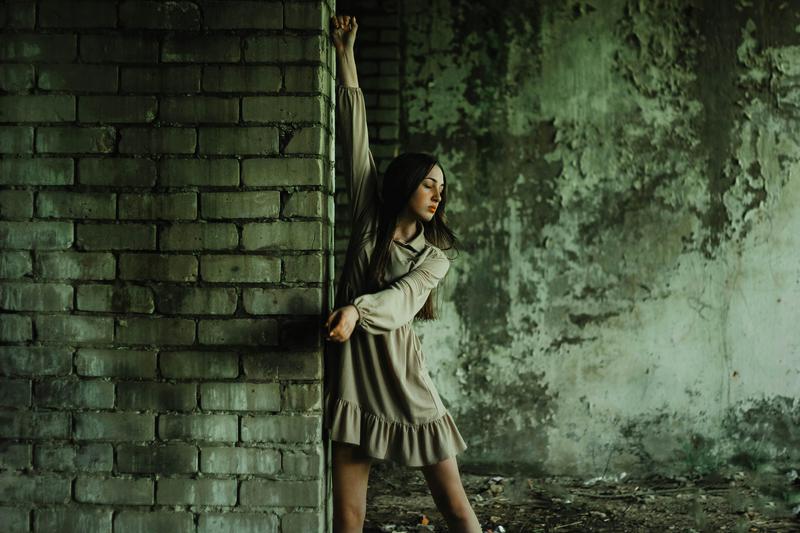by Diane Josefowicz
May 21, 2024
Annika Rose by Cheri Johnson; Red Hen Press; 264 pages; $18.95.
Typically resourceful and resilient, Annika Rose Rogers has become stuck. Plunged into painful limbo after her high school graduation, the titular heroine of Cheri Johnson’s debut novel is fast outgrowing life in her father’s house, a narrow trailer in northern Minnesota. In this landscape of “flat green and gold," there are few humans but many deer and barn cats and innumerable horses; people travel on country roads in trucks and on bikes, and, in one case, “riding a swaybacked Appaloosa." But there’s more to Annika’s ennui than simple lack of social life. An affecting character study set in an evocative landscape, Annika Rose plumbs the depths of a lonely childhood marked by grief and offers no easy answers to big questions: To what extent should parents lean on children?
Bored and enervated, Annika ventures off her father’s property. This modest journey is a first step toward the different life that she senses awaiting her beyond her father’s stifling trailer. In deftly presented details, Johnson renders Annika’s discomfort: “In the last week of June, she suffered a long, lonely, quiet morning, when even the dry rasp of the gelding’s tail against the wood of his stall startled her and made her skin creep.” The next thing she knows, Annika’s talking with her new neighbor, Tina, tall and striking with “bronze-painted fingernails," who has just arrived from Iowa City with her boyfriend Jesse, a musician. They have plans to build a log A-frame—a house that, as misfortune would have it, was just the same dream of Annika’s mother, whose death years before has left an indelible mark on Annika. This coincidence serves to link Tina with Annika’s absent mother, at least in Annika’s mind, and the uncomfortable symbolic closeness unnerves Monika as her father takes an interest in Tina.
Annika’s mother’s unrealized dreams of home and family press on Annika in quiet moments. “[H]er mother’s carefully colored image of the A-frame house shone in front of Annika’s eyes as if it were on fire. She shut herself in the bathroom for a short time. There, she laughed and cried quietly until her stomach ached.” Annika’s strong response to this still-vivid memory is characteristic: her present is fully infiltrated by her past. Intermingling Annika’s past and present, Johnson creates a rich and layered portrayed of Annika. Even when they are intrusive and painful, Annika’s memories lend depth and interest to her character. Johnson excels at showing how Annika navigates the developmental throes of young adulthood while contending with the riptide of her memories and her losses, particularly the loss of her mother. She’s a sturdy heroine, easy to admire—a gift to readers who are tired of manic pixie dream girls and other similarly bland and easily commercialized fantasy objects.
After years of grim devotion to the task of getting on, Annika’s bereaved father is also showing signs of wanting to grow and change. His bid for a new life includes getting closer to Tina, distressing Annika, whose unease is not misplaced. Nothing good can come of this flirtation: Tina is closer to Annika’s age than she is to Annika’s father’s, and she’s already paired up with Jesse. Weston seems all too aware of the risks he’s taking, yet he continues to offer himself in various ways to Tina, by giving practical help around the homestead as well as advice and a shoulder to cry on when Jesse’s irresponsibility and boorishness become too much.
It’s tempting to condemn Weston’s cringy bids for a new life, but he is at least shifting his focus off Annika. Johnson knows that even apparently bad or at least unorthodox parenting can nevertheless be good enough. As Weston emerges from his grief, Annika herself becomes freer to make moves of her own. Soon she’s teaching music in town and selling homemade jam. To these developments, however, Weston responds disappointingly. When Annika asks to use the family truck, he replies, aghast, “What am I supposed to do if it turns out I’ll need it?” Annika points out that he could always call on their new neighbors. Her father disdains the idea, as it offends his sense of himself as able to handle anything—even if that capacity relies, which in fact it does, though Weston will not admit it, on Annika’s constant presence and willingness to drop everything for him at any time. By showing this dynamic, Johnson has painted a compelling portrait of a parent whose over-involvement with, and consequent dependence on, a child threatens that child’s developing autonomy. Johnson’s novel anatomizes this complex but familiar dynamic, showing how newly independent behaviors, even very tiny and unremarkable ones, of one member of a family can create waves of disturbance that touch all the rest.
Although Annika’s conflict shows most clearly in her relationship with her father, it is also, and perhaps more pressingly, within herself. Johnson prompts readers to ask: Dare Annika demand the independent life she dreams of? The forecast here is mixed. After a brief, fragile romance sours, Annika salves her wounds by returning to the solitary comforts of her tomato garden and her bike, enjoying her immersion in experiences of sensory richness and the soothing rhythms of the natural world. Johnson’s prose is at its best in these descriptions of Annika’s world when Annika is alone in it. Perhaps the price of independence is a permanent solitude; certainly it seems that way for Annika. One day while out riding, Annika catches a glimpse of a bus that reminds her of the failed romance and races in a near-panic to get away:
"Annika pumped hard and fast to sweep the memory from her head. By the time she coasted breathless and dusty into the driveway, she felt a little better. The muscles in her legs had a pleasant ache, her fingers smelled of sun-warmed tomatoes, and she never had to get on a bus again."
Although it is difficult, and probably hazardous, to guess at an author’s intentions, it does seem that Cheri Johnson has set out to write a novel that invites the reader into the experiences of a resilient and resourceful young woman finding her way toward adulthood using the resources of the natural world that are all around her. In this, Johnson has succeeded: Annika Rose is a study of growing through devastating loss and difficult family dynamics on the one hand, and of the vivid particularities of life in a remote and beautiful place, on the other.
__________________________________________________________________________________________________________________________________________________________________________
__________________________________________________________________________________________________________________________________________________________________________
__________________________________________________________________________________________________________________________________________________________________________
Go Away, Closer: Time and Perspective in Annika Rose by Cheri Johnson
FICTION REVIEW
Image by Eugene LIsyuk from Pexels
Diane Josefowicz is associate fiction editor at West Trade Review and the author of two works of fiction: Ready, Set, Oh: A Novel (Flexible Press, 2022) and L’Air du Temps (1985), just out from Regal House.
__________________________________________________________________________________________________________________________________________________________________________
__________________________________________________________________________________________________________________________________________________________________________
© 2024 Iron Oak Editions
Stay Connected to Our Literary Community. Subscribe to Our Newsletter




